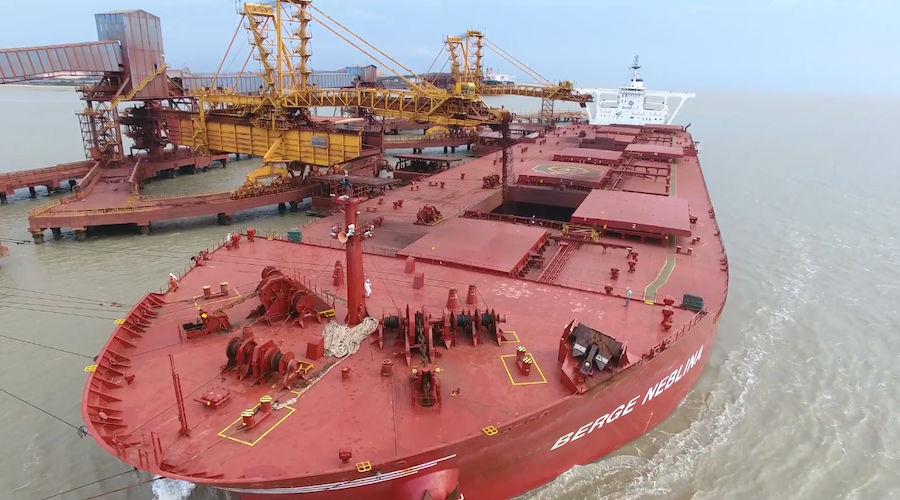Brazil private ports move 11% more cargo in Q1, driven by commodities trade

Brazil’s private port terminals moved some 185 million tonnes of cargo in the first quarter, an 11% annual increase driven mainly by trade in mineral and agricultural commodities, data compiled by private port lobby group ATP showed on Tuesday.
Movement of wood products and other pulp byproducts including paper rose the most among all cargos, by 26.5%.
Oil and certain byproducts, up 19.5%, as well as iron and iron ore cargos, up 17.5%, also boosted cargo movement in the first quarter, ATP data showed.
Private terminals operated by firms like miner Vale SA , Petrobras Transporte SA (Transpetro), and U.S.-based grain merchants Cargill Inc and Bunge Ltd, account for about two-thirds of Brazil’s overall port cargo, Murillo Barbosa, head of ATP, told Reuters on Tuesday.
Private terminals operated by miner Vale SA, Petrobras Transporte, Cargill and Bunge account for about two-thirds of Brazil’s overall port cargo
He said that ratio has been stable over recent years, adding that domestic private port operators helped Brazil solidify its position as one of the world’s biggest commodities exporters.
A near-18% rise in cargoes moved via containers was driven by a booming Brazilian meat and wood trade, and imports of plastics and aluminum, according to ATP data for the first quarter. Barbosa said this was in spite of a global imbalance in container distribution, which began with the pandemic and has continued.
Barbosa said Brazil’s port terminals are on track to break last year’s record of 760 million tonnes of cargo moved.
Regarding Brazil’s grain harvest delays that curtailed grain passing through ports, Barbosa said they were short-lived.
Even with delays caused by the weather, movement of solid bulk cargos including grains like soybeans grew by 7% in the first quarter, ATP data showed.
(By Ana Mano; Editing by Matthew Lewis)
{{ commodity.name }}
{{ post.title }}
{{ post.date }}




Comments